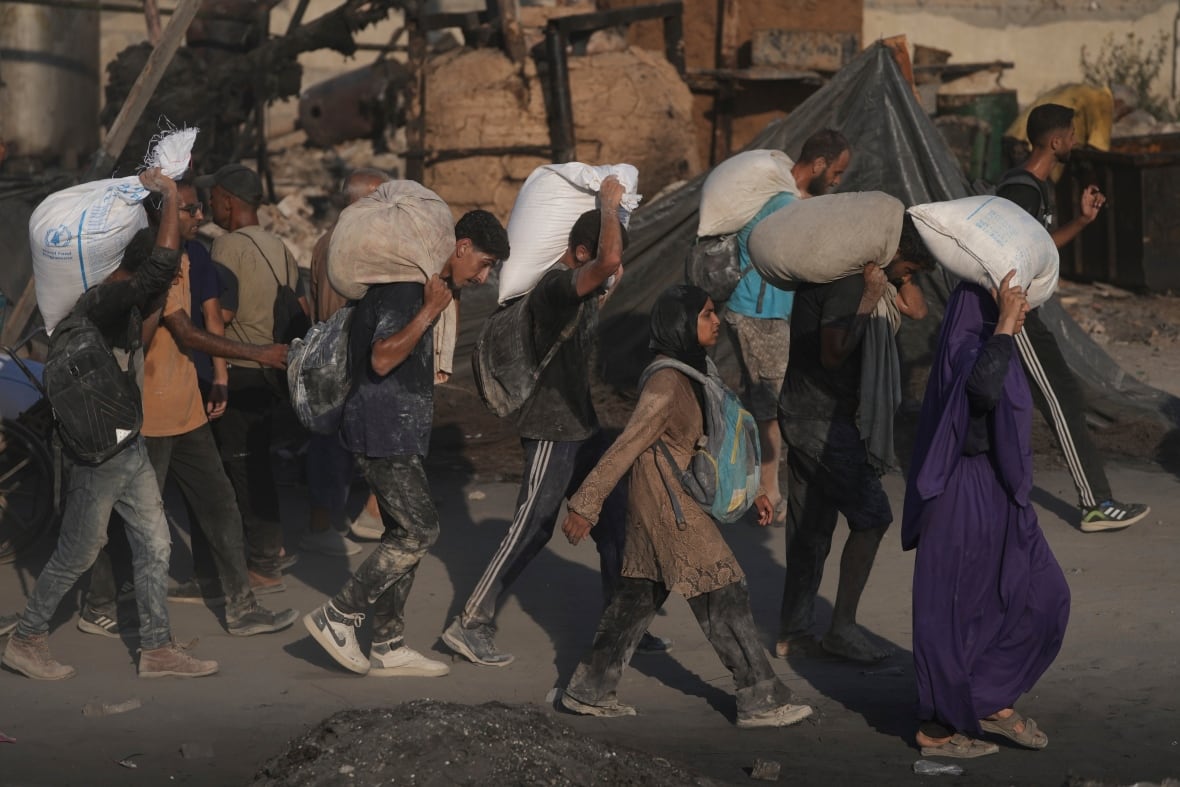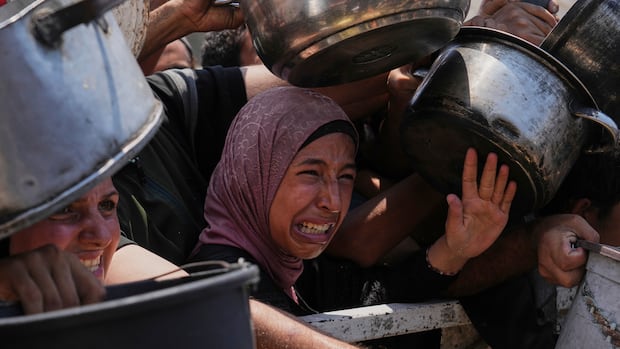Israel resumes Gaza aid drops days after criticism from agencies over hunger crisis
Despite mounting malnutrition-related deaths, Israel asserts 'no starvation' in Gaza
Israel resumed airdrop aid to Gaza on Saturday night, the Israeli military said, a few days after more than 100 agencies warned that mass starvation was spreading across the enclave.
The military also said in a separate statement that designated humanitarian corridors would be established to enable the safe movement of United Nations convoys delivering aid to the Gaza population and that humanitarian pauses would be implemented in densely populated areas.
"The airdrops will include seven pallets of aid containing flour, sugar and canned food to be provided by international organizations," the military said in a statement. It added that humanitarian corridors will be established for United Nations convoys.
Palestinian sources confirmed that aid has begun dropping in northern Gaza.
More than 125 people have died due to malnutrition, including 85 children, the Gaza Health Ministry said on Saturday.

Israel has faced mounting criticism from aid agencies, which accuse it of restricting aid delivery. The World Health Organization's chief, Tedros Adhanom Ghebreyesus, described the crisis as "man-made mass starvation" and Canadian Prime Minister Mark Carney has called Israel's actions a "violation of international law."
Israa Abu Haleeb told CBC News that her six-month-old daughter, Zainab, is among those who've died of malnourishment.
The 31-year-old said she was only able to breastfeed her daughter for a week and a half during the short-lived ceasefire. She said she had to switch to formula when fighting resumed and she couldn't produce milk as conditions deteriorated.
Dr. Ahmed al-Farah, head of the pediatric department at Nasser Hospital in Khan Younis where Zainab was brought by her parents, told The Associated Press that the baby needed a special type of formula that helps with babies allergic to cow's milk.
He said she hadn't suffered from any diseases, but the lack of that formula led to chronic diarrhea and vomiting. She wasn't able to swallow as her weakened immune system led to a bacterial infection and sepsis, and she quickly lost more weight.
"The lack of baby formula and the closing of the crossings is not allowing the baby formula to go in," Haleeb said, adding Zainab was born at about six and a half pounds and died weighing under four and a half pounds.
"Just like my daughter died, many more will die," said Haleeb.
"They will all be added to the list of dead people and nobody will look at it. It is just a bunch of names and numbers. We are just numbers. Our children that we carry for nine months are just numbers."
Israel accuses UN of shortcomings
Israel, which cut off all supplies to Gaza from the start of March and reopened it with new restrictions in May, says it is committed to allowing in aid but must control it to prevent it from being diverted by militants.
It says it has let enough food into Gaza during the war and blames Hamas for the suffering of Gaza's 2.2 million people.
Israel has also accused the United Nations of failing to act in a timely fashion, saying 700 truckloads of aid were idling inside Gaza.
"The IDF emphasizes that there is no starvation in the Gaza Strip; this is a false campaign promoted by Hamas," the Israeli military said in its Saturday statement.
"Responsibility for food distribution to the population in Gaza lies with the UN and international aid organizations. Therefore, the UN and international organizations are expected to improve the effectiveness of aid distribution and to ensure that the aid does not reach Hamas."
With files from Mohamed El Saife and The Associated Press

